Recent Blog Posts
The Truth about School Bus Accidents
 There are almost a half a million school buses transporting more than 20 million children to and from school in the United States every school day. There are no escaping school bus accidents, given this level of travel, and all school bus accidents have the potential to be tragic, since our children are on them. While the school bus remains the safest mode of transporting children to and from school, in the last five years, there have been over 500 school bus crashes, averaging about 180 school bus injuries or fatalities per year.
There are almost a half a million school buses transporting more than 20 million children to and from school in the United States every school day. There are no escaping school bus accidents, given this level of travel, and all school bus accidents have the potential to be tragic, since our children are on them. While the school bus remains the safest mode of transporting children to and from school, in the last five years, there have been over 500 school bus crashes, averaging about 180 school bus injuries or fatalities per year.
School bus accidents occur in several ways. The bus may actually crash into another moving object or stationary object. The bus may hit a pedestrian, or a bus may be hit by another moving vehicle. Children or other occupants may get injured on the bus if the driver slams on the brakes, and many injuries occur while getting on and exiting the bus. Safety measures and public awareness have made school buses safer over the years, but school bus accidents still do occur with regularity.
Deer Collisions on the Rise in Wisconsin
 State Farm insurance recently released a study which shows that motorists in Wisconsin are more likely to collide with a deer than motorists in 44 other states. The national average of drivers hitting deer is one out of every 169 drivers, while the Wisconsin average is one out of every 77 drivers.
According to the study, you are 10 percent more likely in 2015 to hit a deer on Wisconsin roads than in 2014, and since October and November are the months with the highest car/deer accident rates, now is a good time to review the steps you should take if you are in an accident involving a deer.
State Farm insurance recently released a study which shows that motorists in Wisconsin are more likely to collide with a deer than motorists in 44 other states. The national average of drivers hitting deer is one out of every 169 drivers, while the Wisconsin average is one out of every 77 drivers.
According to the study, you are 10 percent more likely in 2015 to hit a deer on Wisconsin roads than in 2014, and since October and November are the months with the highest car/deer accident rates, now is a good time to review the steps you should take if you are in an accident involving a deer.
What Should You Do If a Deer Collides with Your Car?
Getting into a collision with a deer can be terrifying, and it is important not to lose your focus if this occurs, no matter how difficult it may be. There are a number of important steps you should take if you are in an accident with a deer. Move Your Car to Safety We understand that if you are in a collision with a deer, you are most likely going to be quite shaken up afterwards. However, according to statistics, most collisions with deer take place early in the morning or at dusk and this is when it is most difficult for other cars to see you on the road. Therefore, the very first thing you should do if you are in an accident with a deer is to move your car safety. If your car will not move, at least move yourself to safety before taking any additional steps. Whether or not your car is safe to drive is another issue, and if it feels in any way compromised (or if your airbag deploys), you should take your car directly to your mechanic (or have it towed, depending on the extent of the damage). Call the Police If you are in an accident with a deer, it is important to call the police. This is true even if your car is not substantially damaged, and especially true if the deer is lying in the middle of the roadway. It is critical to make a report of what happened so that when you make a claim against your insurance company, there is already a police report containing your best recollection of the accident circumstances. If possible, it is also a good time to take photographic evidence of the scene, and if there were any eyewitnesses, try to get their contact information. If You Are Injured, Seek Medical Care Hopefully if you are in a car accident with a deer, you are not injured. Sometimes, however, injuries happen, especially whiplash type injuries from slamming on the brakes. If you think you have been injured in any way, you should go directly the emergency room to be checked over by a medical professional. Do not wait until minor aches and pains get worse – if you have any discomfort or pain after an accident, go to the emergency room. Report the Claim to Your Insurance Company This is the final step in the process, but it is important to be clear about your goals before placing the call, and to understand the insurance policy that covers you also covers accidents in your car. The insurance company always has the goal of minimizing any payments they have to make under the policies they issue, so it is important to be knowledgeable about what your policy covers and does not cover.Conclusion
What Happens When Minors Are Injured in Car Accidents?
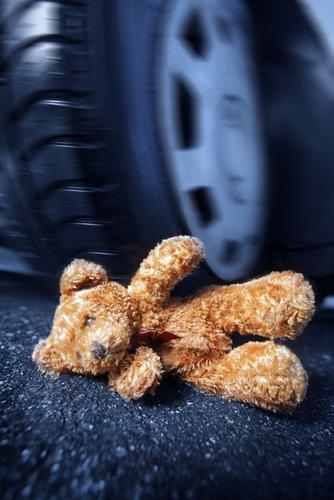 The statistics on children aged 14 and younger in car accidents are grim. In 2012 in the United States, there were 33,561 fatalities due to traffic accidents, and children aged 14 and younger accounted for three percent of the fatalities (1,168). There were also 169,000 children aged 14 and under injured in car accidents in 2012, and motor vehicle crashes were the leading cause of death for children aged 4, 11, 12, 13, and 14. Wisconsin is not immune from these incidents, and many Milwaukee families find themselves unsure as to what to do when their minor child is injured in an accident.
The statistics on children aged 14 and younger in car accidents are grim. In 2012 in the United States, there were 33,561 fatalities due to traffic accidents, and children aged 14 and younger accounted for three percent of the fatalities (1,168). There were also 169,000 children aged 14 and under injured in car accidents in 2012, and motor vehicle crashes were the leading cause of death for children aged 4, 11, 12, 13, and 14. Wisconsin is not immune from these incidents, and many Milwaukee families find themselves unsure as to what to do when their minor child is injured in an accident.
Bringing a Lawsuit
The good news is that you do have recourse if your child sustains injuries in a car accident. A child who is injured because of the negligence of another driver has his or her own cause of action. This allows minors to maintain lawsuits for their injuries, including medical expenses and any other out-of-pocket costs.
Traffic Stops: Were You Pulled over by the Police without Justification?
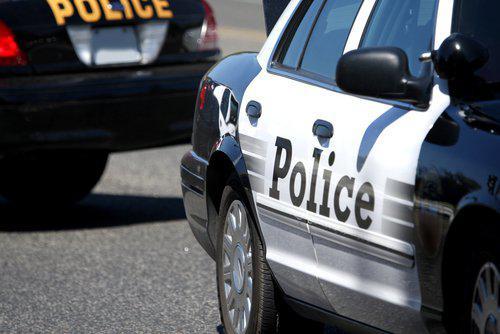 One of the first questions your criminal defense attorney will ask you when you seek help for an arrest stemming from a traffic stop is why the police pulled you over in the first place. No matter if you have been arrested for drug charges, drunk driving charges, gun charges, or for any other reason, the police must have a constitutionally valid reason to stop you in the first place. If the police did not have a constitutionally valid reason to make the stop, any evidence found can be suppressed, which can often lead to dismissal of your charges.
One of the first questions your criminal defense attorney will ask you when you seek help for an arrest stemming from a traffic stop is why the police pulled you over in the first place. No matter if you have been arrested for drug charges, drunk driving charges, gun charges, or for any other reason, the police must have a constitutionally valid reason to stop you in the first place. If the police did not have a constitutionally valid reason to make the stop, any evidence found can be suppressed, which can often lead to dismissal of your charges.
Recent Legal Developments
The Wisconsin Supreme Court, in an opinion published July 14, 2015, has opined that any time the police have a reasonable suspicion that traffic laws have been or are being violated, then a justifiable traffic stop can be made. In Wisconsin v. Houghton, a police officer pulled a Wisconsin resident over after observing the car he was driving was missing the front license plate, and because there was an air freshener hanging from the rear view mirror and a GPS on the front windshield. The officer then allegedly smelled marijuana as he approached the vehicle, and after searching the car found 240 grams of the substance.
Dealing with Insurance Companies after a Car Accident
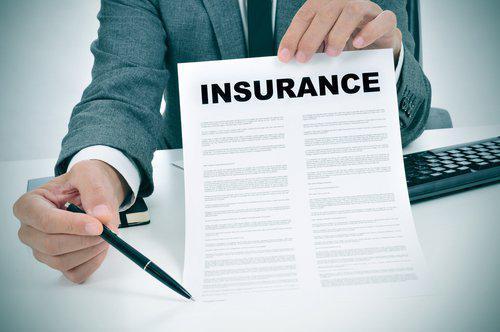 You don’t think much about your car insurance company until you have been in a car accident. But, once you have had an accident, you will be dealing with them and any insurance company that insures the other driver, a lot. When the cause of an accident is clear, people often mistakenly think dealing with the insurance companies should not be a big deal.
You don’t think much about your car insurance company until you have been in a car accident. But, once you have had an accident, you will be dealing with them and any insurance company that insures the other driver, a lot. When the cause of an accident is clear, people often mistakenly think dealing with the insurance companies should not be a big deal.
Does Your Insurance Company Represent You?
The most important thing for you to realize is that no insurance company technically represents you in your car accident case. Even your own car insurance company is looking after their own interests. Insurance companies are for-profit organizations that do not make profits by paying out more than necessary in car accident claims.
Biggest Mistakes People Make in Car Accident Claims
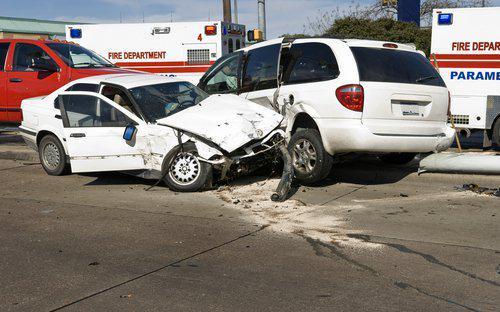 After your car has been towed and you have been to the doctor, comes the part of a car accident most people hate the most - dealing with insurance. While every car accident is different, there are several common mistakes that people make when they have a car accident claim.
After your car has been towed and you have been to the doctor, comes the part of a car accident most people hate the most - dealing with insurance. While every car accident is different, there are several common mistakes that people make when they have a car accident claim.
Not Doing Your Own Research on Your Car
If your car has been totaled by insurance, you are going to have to figure out the value of your vehicle. Often, the insurance company will do that for you. The mistake many people make is to simply accept the insurance company’s value without doing their own research.
An offer from the insurance company is just an offer. If you can demonstrate your car was worth more than they are offering, you may be able to get more for your car.
Preparing for Wisconsin Winter Driving
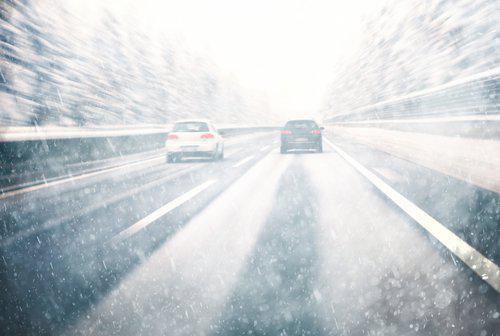 Traffic accidents occur for a number of reasons. Distracted driving, impaired driving, and violation of traffic laws typically top the list of most common causes of accidents. Last year, the Wisconsin Department of Transportation reported nearly 120,000 motor vehicle crasheswith approximately 21,000 of them being speed-related and approximately 5,000 being alcohol-related.
Traffic accidents occur for a number of reasons. Distracted driving, impaired driving, and violation of traffic laws typically top the list of most common causes of accidents. Last year, the Wisconsin Department of Transportation reported nearly 120,000 motor vehicle crasheswith approximately 21,000 of them being speed-related and approximately 5,000 being alcohol-related.
However, there are other factors that affect drivers’ safety on the road such as weather conditions. It is not uncommon for Milwaukee drivers to experience harsh winter weather including cumulative snowfall of more than 60 inches per year.
Those native to Wisconsin may already be aware of what to do to winterize their vehicles, but it is important to keep these winter tips in mind to ensure safer driving during the colder months:
Uber Driver Liability in Personal Injury Cases
 Over the last few years, the driving service, Uber, has grown tremendously. The number of new drivers has practically doubled every six months, and on any given day, at least 150,000 drivers log trips in the company’s system. In many ways, it has had a positive impact on America by reducing the number of drunk drivers on the road while providing average people with an easy way to make extra cash. Yet, despite its benefits, this rapidly growing business continues to spark some pretty serious questions regarding liability and personal injury.
Over the last few years, the driving service, Uber, has grown tremendously. The number of new drivers has practically doubled every six months, and on any given day, at least 150,000 drivers log trips in the company’s system. In many ways, it has had a positive impact on America by reducing the number of drunk drivers on the road while providing average people with an easy way to make extra cash. Yet, despite its benefits, this rapidly growing business continues to spark some pretty serious questions regarding liability and personal injury.
Assaults on Drivers
Afraid that they may be at risk because of intoxicated or violent passengers, many Uber drivers have begun to record their trips, not just to reduce their own risk of complaints from riders, but to ensure they have evidence if they are assaulted. In one recent case, a California Uber driver claims to have been assaulted by a former Taco Bell employee.
Wisconsin Interstate Accident Rates Increase with Speed Limit
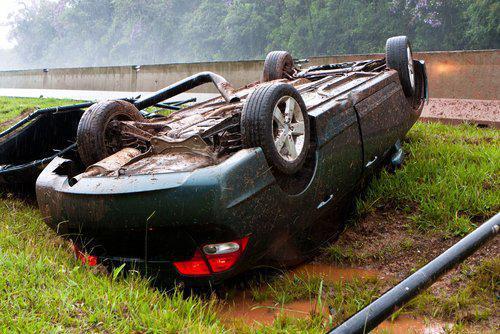 Across the United States, speed limits on national interstates have been increasing. Wisconsin — the last upper Midwest state to up the maximum speed limit to 70 miles per hour — began to implement their increases back in mid-June. Over a four month period, there have been five more vehicle accident fatalities than there were over the same time period last year, and each month the accident rate was nearly 13% higher than the previous year. Officials are concerned about the implications, especially since we are now headed into colder months with potentially poorer driving conditions.
Across the United States, speed limits on national interstates have been increasing. Wisconsin — the last upper Midwest state to up the maximum speed limit to 70 miles per hour — began to implement their increases back in mid-June. Over a four month period, there have been five more vehicle accident fatalities than there were over the same time period last year, and each month the accident rate was nearly 13% higher than the previous year. Officials are concerned about the implications, especially since we are now headed into colder months with potentially poorer driving conditions.
Reason for the Uptick in Accidents Unknown
Although it is easy to blame the increase in the number of accidents on the new speed limit, officials admit that they do not know the real reason behind it. It could be that drivers are still adjusting to the increased speed limit, or that some drivers may still be traveling at slower speeds and inadvertently creating more risk for an accident. There is also the possibility that other factors, such as distracted driving, have a role in the increase in accidents.
Smartphones Suspected in Massive Spike of Motor Vehicle Fatalities
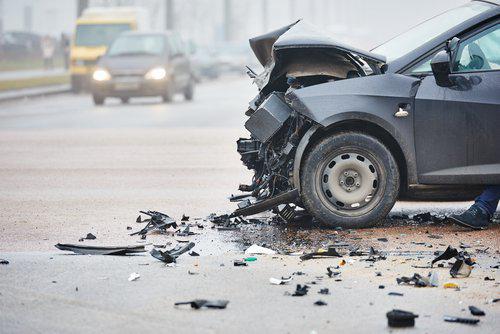 Experts believe that the recent spike in motor vehicle accidents and fatalities goes beyond what would be reasonable if it were simply a matter of more drivers on the road; they say smartphones may be largely responsible.
Experts believe that the recent spike in motor vehicle accidents and fatalities goes beyond what would be reasonable if it were simply a matter of more drivers on the road; they say smartphones may be largely responsible.
Road Fatalities More than Double the Expected Increase
According to preliminary government statistics, national motor vehicle death rates rose to 16,225 from January 2015 to June 2015. Experts from the National Highway Traffic Safety Administration say this is more than double the increase expected from the variables of falling gas prices and a growing, improving economy. It is also the biggest six-month jump in reported traffic deaths since 1977.
Officials Examining Possible Causes
While officials say it is too early to identify the true causes behind the spike in motor vehicle fatalities, they are investigating some possibilities. For example, they say that teen drivers (and other risky drivers) may be on the road more often because of lower gas prices, which could be at least partially responsible for the increase in fatalities. But distracted driving — or the use of electronics devices such as smartphones — is the most suspected cause.







